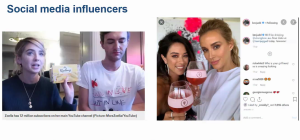WHO Euro 07-07-2020
According to a newly published report, “Alcohol marketing in the WHO European Region”, alcohol marketing is adapting to new realities faster than current legal regulations across the Region, with industry using opportunities offered by digital platforms to sell their products in a largely unregulated market. The publication explains how innovative online advertisement techniques can target consumers precisely to promote drinking. This includes children and adolescents.
Approximately US$ 1 trillion is spent on alcohol advertising globally each year, with an ever-increasing number of promotional campaigns in online media. At the same time, according to the latest WHO data, less than a quarter of all Member States of the Region have at least some marketing bans for the internet. Even fewer countries have implemented similar restrictions for social media, despite bans or comprehensive restrictions of alcohol advertising being among the most cost-effective measures to reduce alcohol consumption and associated harms.
This situation needs to be changed, given that drinking levels in the Region are the world’s highest. In 2016, every 10th death in the Region was attributed to alcohol. It is not only a leading risk factor for noncommunicable diseases like cancer and heart conditions, but also contributes to a considerable number of infectious diseases, mental health issues, road traffic crashes, injuries, violent incidents and crimes. The association between exposure to alcohol marketing and levels of alcohol consumption and harm is well established, and this new WHO publication explains how countries of the Region can tackle the impact of evolving advertising techniques on people’s health.
Turning users into promoters
The last decade has seen a boom in online marketing technologies. Alcohol marketing is actively exploring the new grounds of the internet and social media, given that the existing legislation and rules for online platforms are vaguely formulated all over the Region. 
According to the WHO report, the nature of social media communities has implications for the cultural acceptance of alcohol, especially among youth. New social media marketing interacts and engages, encouraging consumers to like posts, reply to questions, tag their friends and even generate their own content that serves the same promotional goals. In other words, social media users can unknowingly act as promoters themselves.
Alcohol marketing has become a global and multifactor issue. Today, it transcends borders and uses the diverse digital landscape to spread its messages. Online promotion techniques can even reach consumers in regions where alcohol-related content is prohibited by national law. The global scope of alcohol marketing, with blurred boundaries between advertiser and consumer, requires a broadening of the scope of marketing regulation and an update of current legislation, advises the WHO report.
Regulating alcohol marketing: what can the European Region do?
Although most countries of the Region have some form of marketing regulation, very few have statutory bans that prohibit or at least limit the marketing of alcoholic beverages by law. In contrast with the work on tobacco control, there has not been an international or regional framework instrument with guidelines for implementation to underlay and support initiatives to regulate alcohol advertisement and promotion, including digital marketing. This is important since the available evidence suggests that self-regulation has no meaningful impact on public health and that investment in digital platforms has increased, targeting new consumers.
Existing regulation across the Region applies for the most part to traditional channels of marketing, such as advertising on television, radio and print media. It also remains largely fragmented, for instance prohibiting one type of alcoholic beverages for a certain media type, while not regulating others. Online marketing of alcohol is by far the least-regulated field, although a considerable shift has taken place from traditional channels to the digital landscape.
The Region has opportunities to implement comprehensive, statutory regulations restricting or banning alcohol marketing to protect consumers and stop normalization of drinking behaviour for future generations.
Increased awareness of the extensive challenges posed by online marketing, and political commitment to deal with them, are needed more than ever. Digital marketing should be included in regulatory frameworks – as thousands of posts and videos are published on a multitude of platforms daily. There is an urgent need to develop a protocol to help distinguish native advertising, user-generated content and other commercial messages that may be difficult to understand or interpret, especially by younger consumers.
The positive side of global alcohol marketing campaigns is that they can unite countries. The Member States of the WHO European Region share common interests in producing knowledge and effective controls that can serve public health work across borders.
The “Alcohol marketing in the WHO European Region” update report has been prepared by WHO/Europe’s Alcohol and Illicit Drugs Programme and the WHO European Office for the Prevention and Control of Noncommunicable Diseases.




